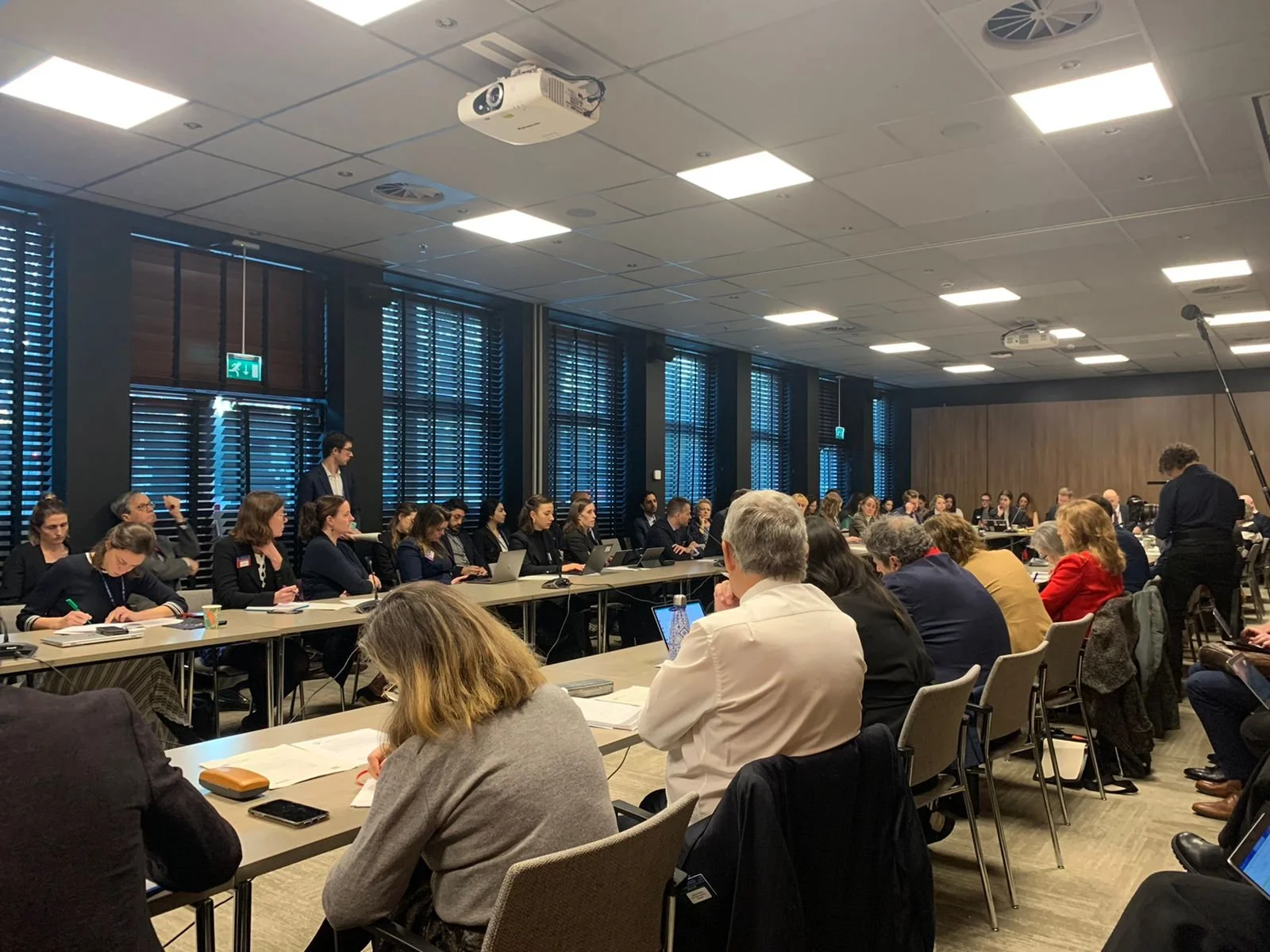21st SESSION OF THE ASSEMBLY OF STATES PARTIES
7 December 2022
Name of the Event: A sustainable model for responding to conflict-related sexual violence in Ukraine - Presenting the Ukrainian Prosecutor General’s conflict-related sexual violence strategy and discussing its transformative potential to enhance access to justice (organized by Australia, Canada, the Netherlands, Poland, the United Kingdom, International Federation for Human Rights, Global Rights Compliance and Women’s Initiatives for Gender Justice)
Report by: Kateryna Kyrychenko, Program Manager, PILPG
Highlights:
Victim-centered practices need to be in the center of all investigations and prosecutions of sexual violence cases.
Reparations and compensation for the victims, access to services, PSS, and security guarantees are the main needs of the survivors of conflict-related sexual violence.
Discriminatory practices that prevent access to justice for victims, wide-spread patriarchal stereotypes, and biases that create grounds for sexual violence and stigma against the victims are the main issues that need to be tackled to prevent and avoid sexual violence in conflict in Ukraine and in other contexts.
Detailed info on the Side Event and the newly adopted Ukrainian “Victim and Witness-Oriented Stretegy for the prosecution of CRSV crimes” can be found here: https://4genderjustice.org/crsv-in-Ukraine
Speakers:
Iryna Dovgan, Survivor activist and Coordinator of SEMA Ukraine – Network of Victims and Survivors of Wartime Sexual Violence
Iryna Didenko, Head of Specialized CRSV Unit, War Crimes Department of the Ukrainian Office of the Prosecutor General
Hrystyna Kit, Chairwoman of the Association of Women’s Lawyers of Ukraine “JurFem”
Kateryna Cherepakha, President of CSO “La Strada-Ukraine”
Anna Mykytenko, Country Manager – Ukraine, Global Rights Compliance
Carolyn Edgerton, Legal consultant and mentor, former ICTY Trial Attorney
Kim Thuy Seelinger, Special Adviser to the ICC Prosecutor on Sexual Violence in Conflict
Summary of the Event:
Ukraine is now at a stage where it needs to combat biases, discrimination, and stereotypes underpinning sexual violence in all forms. Prosecutor General of Ukraine initiated the development of the framework for dealing with sexual violence - “Victim and Witness-Oriented Strategy for the prosecution of CRSV crimes”, that was recently adopted with the support of international partners.
Iryna Dovgan (Survivor activist and Coordinator of SEMA Ukraine – Network of Victims and Survivors of Wartime Sexual Violence), in her pre-recorded opening remarks, noted that due to the full-scale Russian invasion of Ukraine in February 2022, there are augmenting numbers of victims of sexual violence reported. National law enforcement bodies’ response and lack of compensations system for victims in Ukraine were mentioned as the main pertaining issues.
Iryna Didenko (Head of Specialized CRSV Unit, War Crimes Department of the Ukrainian Office of the Prosecutor General) spoke about timely documentation of all war crimes committed by Russia in Ukraine as an extremely crucial issue. The law enforcement and prosecution system of Ukraine was not ready for such a large-scale challenge, which has caused grave investigation and prosecution issues (such as prevention of re-traumatization of victims) during the first months of the invasion. Prosecutor General of Ukraine Andriy Kostin has introduced the next steps that have helped mitigate those issues: all investigations of sexual violence-related cases were paused to build capacities of the prosecutors and investigators; new specialized units were created; new strategic approaches were developed with international support (such as “Victim and Witness-Oriented Strategy for the prosecution of CRSV crimes”). As of now, 114 cases of confirmed sexual violence cases, committed by Russian combatants in Ukraine, were registered since February 2022 (this number includes only victims that agreed to undergo all necessary procedures, the actual number of victims is much higher); with victims being in the age range of 4-82 years, of different genders.
Hrystyna Kit (Chairwoman of the Association of Women’s Lawyers of Ukraine “JurFem”), during her intervention, mentioned the following challenges: communication with victims of SGBV, ensuring victims are aware of available services and rights, coordination and cooperation of the judicial branch, law enforcement sector and social protection services, identification of all forms of SGBV (as of now there are no national legal provisions on different kinds of sexual violence), decentralization, strengthening of regional-level availability of services available for survivors, and capacity-building of service-providers, provision of non-monetary compensations for the survivors of SGBV since 2014 (guarantees of non-repeating, as a main desired guarantee mentioned by victims themselves). On the other hand, as mentioned by Ms Kit, non-conflict related sexual violence should also not be disregarded by the Ukrainian Government (one step forward in this direction that has already been done by Ukraine is the ratification of the Istanbul Convention in June 2022, which has entered into force since 1 October 2022).
Kateryna Cherepakha (President of CSO “La Strada-Ukraine”, which works with victims of human trafficking and sexual violence) made a point that the wide-spread understanding of sexual violence is too narrow and is usually limited only to rape, which excludes other forms of sexual violence from the discourse and limits rights of the victims. Survivors tend to prioritize requests for assistance rather than reporting about the crimes that they suffered. Safety of survivors is crucial for Ukraine as a state, which is in active war.
Carolyn Edgerton (Legal consultant and mentor, former ICTY Trial Attorney) discussed the areas that require improvement when looking at sexual violence in Ukraine. She advised that we need to tackle the certain discriminatory procedural practices still pertaining in Ukraine (i.e. the requirement of corroboration of victims before taking to court). Ms Edgerton acknowledged transformatory potential of the recently adopted “Victim and Witness-Oriented Strategy for the prosecution of CRSV crimes” for gender-based violence.

